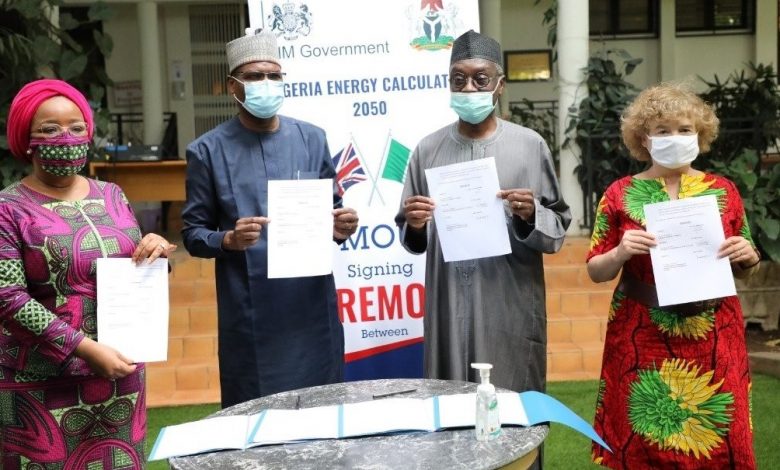Climate change: UK Government to support Nigeria’s efforts to reduce emissions

The UK has signed a Memorandum of Understanding (MOU) with Nigerian to support the development of Nigeria’s Energy Calculator 2050 and the implementation of Nigeria’s long-term strategy for climate change under the Paris Agreement.
The British High Commissioner to Nigeria, Ms Catriona Laing, and Nigeria’s Minister of State for Environment, Sharon Ikeazor, witnessed the signing of the MOU by the UK Department for Business, Energy and Industrial Strategy, Energy Commission of Nigeria and the Federal Ministry of Environment.
The MOU is expected to strengthen the UK government’s efforts to support Nigeria to develop an updated version of Nigeria’s Energy Calculator 2050 for sustainable energy policy planning, monitoring Nigeria’s Nationally Determined Contribution (NDC) commitments and combating climate change.
In 2013, the Department of Energy and Climate Change, now Department for Business, Energy and Industrial Strategy through the British High Commission, supported Nigeria’s Energy Commission to produce and launch Nigeria’s Energy calculator in 2015.
The minister stated that “The Nigeria Energy Calculator 2050 tool offers an opportunity for policymakers, academia, civil society organisations and the private sector to engage in enhancing sustainable energy pathways in Nigeria.”
“I hope that collaborative efforts between Nigeria and the United Kingdom will continue to yield positive results for the achievement of a climate-resilient and a green growth path for national sustainable development,” she said.
The British envoy added that: “The development of the 2050 Calculator further strengthens bilateral collaboration on climate change issues and encourages a strong and progressive Nigerian voice in the run-up to COP26, which the UK looks forward to hosting in 2021.
“We are keen to work closely with Nigeria to deliver the ambitious deal needed to avert the dangers of climate change – success is in our mutual interest.”
Nigeria’s Energy Calculator is key to achieving in its Intended Nationally Determined Contribution (INDC), Low Carbon Energy transition and pledge to unconditionally reduce GHG emissions by 20 per cent by 2030.
Nigeria has been struggling to contain gas flaring in the Niger Delta Region where oil exploration has damaged the ecology and fueled militant attacks by deprived local populations.
In 2017, Nigeria set a target of ending gas flaring by 2020.
With almost eight billion cubic meters of gas flared annually, the country is the seventh-largest gas flarer globally.
In recent years, Nigeria has made significant progress, reducing gas flaring by about two billion cubic meters from 2012 to 2015, according to satellite data.
Support Our Journalism
There are millions of ordinary people affected by conflict in Africa whose stories are missing in the mainstream media. HumAngle is determined to tell those challenging and under-reported stories, hoping that the people impacted by these conflicts will find the safety and security they deserve.
To ensure that we continue to provide public service coverage, we have a small favour to ask you. We want you to be part of our journalistic endeavour by contributing a token to us.
Your donation will further promote a robust, free, and independent media.
Donate HereStay Closer To The Stories That Matter




